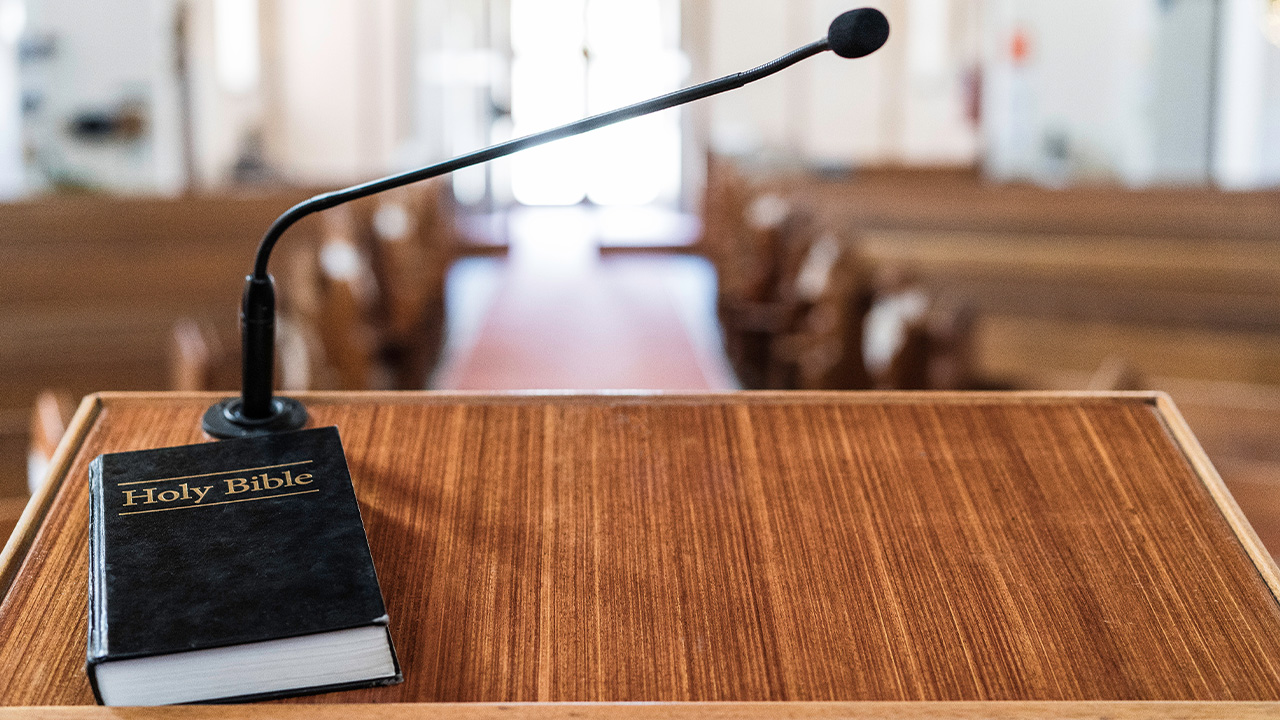


Get a free copy of Parental Rights & Education when you subscribe to our newsletter!

When pastors trot out tedious clichés, refuse to engage in politics, or act like participating in civic responsibility is somehow beneath Christians, they aren’t leading their flocks but leaving them vulnerable to wolves.
We live in a representative republic, which means every American can vote to shape the nation’s future — from school boards to the Oval Office. Unlike Christians in other countries or eras, we can directly influence whether our laws reflect biblical justice or moral decay, depending on who’s in charge.
Secularists, of course, have the same right. Thus, when pastors become mute during an election or fail to clarify the stakes, they’re essentially handing power over to a progressive force that’s actively bent on criminalizing Christianity in the public square.
Shockingly, some pastors aren’t fazed by this at all. It’s as if they’re handing out the stones that will be used to condemn their own congregations.
So, how can you tell if your pastor suffers from spiritual impotence?
Here are three telltale signs:
First, there’s the pastor who pretends politics doesn’t exist. As November approaches, you won’t hear a peep about elections — whether it’s for president, mayor, or senator. These pastors justify their inaction by claiming they don’t want to get “political.” Translation: They’re scared of being labeled “Christian nationalists” or have swallowed the lie that the First Amendment requires total separation between church and state.
This kind of cowardice has serious consequences. Studies show that “pastors are the single greatest influence on whether Christians vote.” With 32 million regular churchgoers reportedly planning to skip the upcoming election, this silence is a colossal failure of leadership. These pastors won’t even point out which candidates will protect religious expression and which ones will subject Christians to endless legal harassment, a la Jack Phillips — who’s been fighting off the LGBTQ mob for over a decade simply for refusing to create designs for blasphemous celebrations in his bakery.
By not speaking up, these church leaders let the progressive left redefine biblical truths on gender, sexuality, and preborn life as mere “political” concerns. But these aren’t fundamentally “political.” As Cornerstone Chapel’s Gary Hamrick said, “God had the first word long before anybody else.”
Then, there’s the pastor who doesn’t ignore politics entirely but tries to minimize its relevance, as if it’s no more than background noise. I’m thinking of one Charlotte guy who briefly became an MSNBC darling for scolding his people for believing that “politics is spiritual stuff.” The pastor preached that politics “is of this world” and doesn’t matter much because “my real citizenship is in Heaven.”
Sure, our ultimate citizenship is in Heaven. However, does that mean we ignore our earthly citizenship and the duties that go along with it? Hardly. Recall that the Apostle Paul invoked his Roman citizenship to defend himself against persecution and spread the Gospel. We ought to be good stewards of our citizenship. Dismissing voting as unimportant shows a startling lack of gratitude for a right that most Christians throughout history could only dream of.
Oh, and yes, politics is spiritual too: “So whether you eat or drink or whatever you do, do it all for the glory of God” (1 Corinthians 10:31).
Finally, there’s the pastor who talks politics but tries to paint all camps as equally bad, giving his congregation an excuse to sit out elections. This is the classic “both sides-ism” scam, where obvious moral differences are blurred in a holier-than-thou attempt to look like a neutral referee who is above partisanship.
One of the main peddlers of this nonsense is a pastor in Columbia, Missouri. His online schtick is “truth over tribe,” claiming that he offers “politics from the perspective of Jesus”— not “liberal, conservative, revolutionary, or Roman.”
Here’s a taste:
“Last night, there was a vice presidential debate. Last night, 800 college students worshiped Jesus. Which do you think God cares more about? Go and do likewise.”
“The kingdom is bigger than left/right binary.”
“The Oval Office is a demotion from the throne of heaven.”
Look, Jesus isn’t on the ballot, but candidates pushing unlimited abortions in every trimester, transgender surgeries for kids, erasing Title IX protections for young women, and promoting graphic LGBTQ content in schools definitely are.
As the shepherd of his flock, shouldn’t a pastor be willing to rebuke such unrestrained evil and name those driving it? Instead, we get trite slogans that sidestep critical worldview distinctions and blunt the impact that Christians could have by just setting aside an hour on a Tuesday to go vote.
We’re not talking about international trade agreements or how many refugees America should take in — issues on which Christians can have honest disagreements. We’re dealing with basic assumptions about humanity that either align with God’s created order or openly defy it.
Yet the “truth over tribe” bro who hosts a podcast on…checks notes…“culture, news, and politics” scoffs at the idea that today’s policy battles can be “easily divided into ‘moral’ and ‘immoral’ positions,” even as biological males are injuring girls during sanctioned sports competitions and barging into their locker rooms and bathrooms.
Frankly, no one expects pastors to be experts on all things political, but shouldn’t they at least guide their members on which politicians are truly committed to protecting their ability to live peaceful, quiet lives — exactly what Paul told Timothy to pray for in governing authorities — and which ones are publicly vowing to gut religious liberty safeguards for nonprofits, medical professionals, foster care families, and business owners?
Rather than rising to the occasion, though, these men of the pulpit trot out tedious clichés, refuse to engage in politics, or give the impression that it’s all beneath “real” Christians.
What you’re seeing isn’t leadership — it’s a condition called spiritual impotence.
If you like this article and other content that helps you apply a biblical worldview to today’s politics and culture, consider making a donation here.
